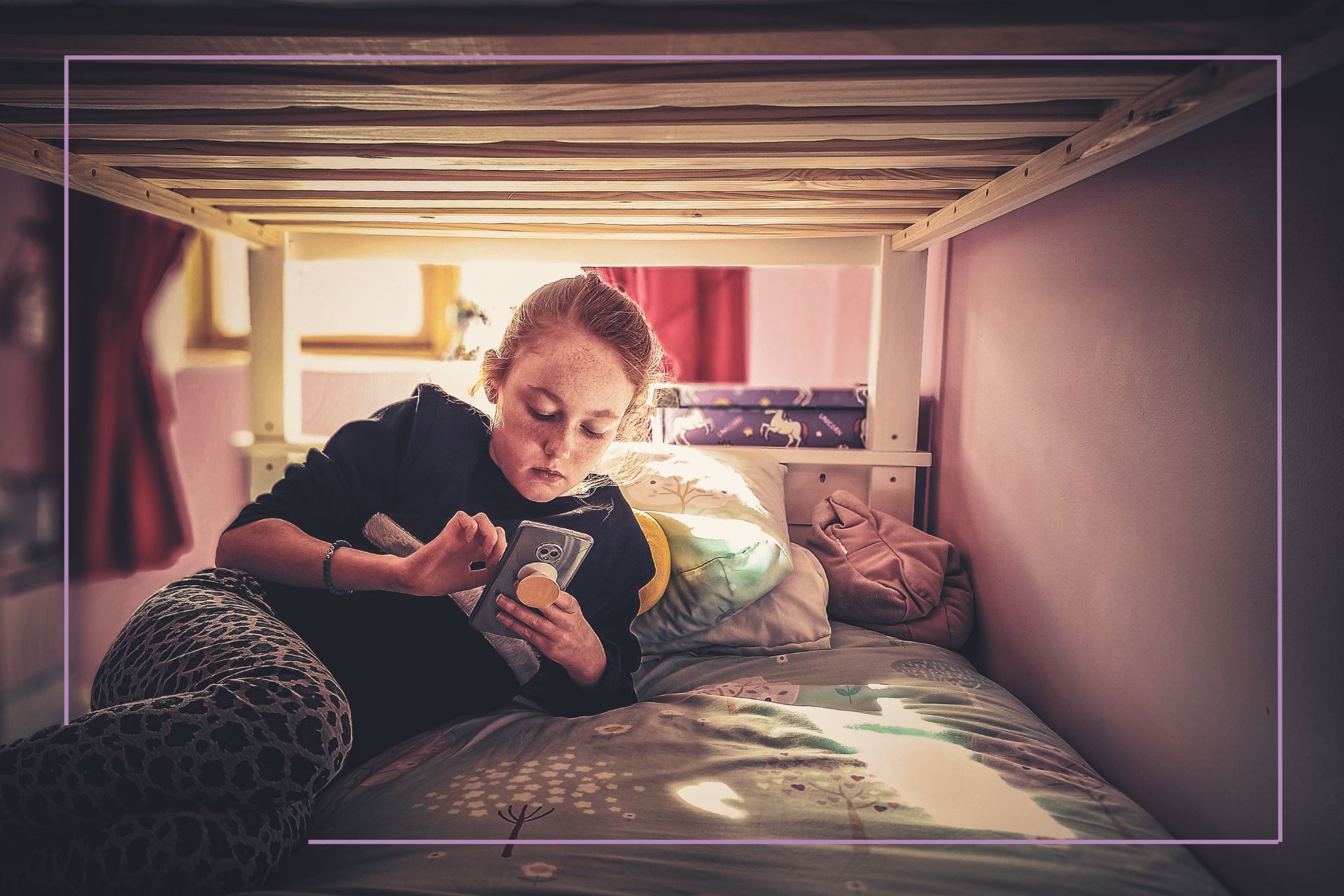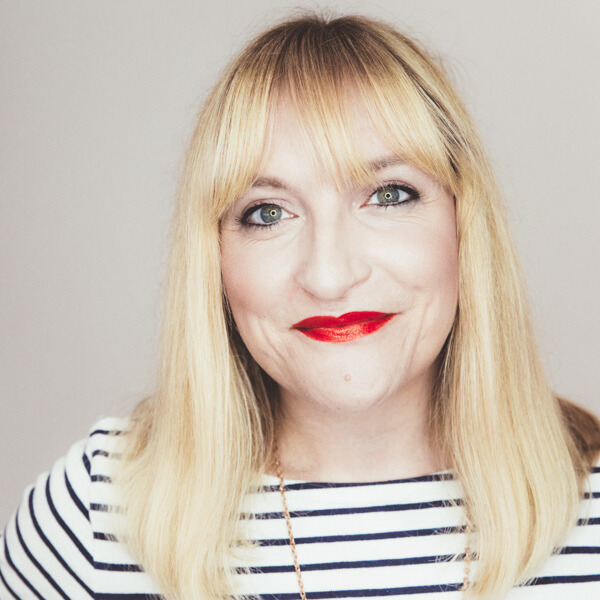I didn't let my tween have her own social media account for these four reasons (and I get that pester power is a lot but I'm so glad I stood strong)
Not sure whether to allow your kids to use social media? Here’s why I don’t let my daughter use any social media apps.


Parenting advice, hot topics, best buys and family finance tips delivered straight to your inbox.
You are now subscribed
Your newsletter sign-up was successful
It’s a conversation being had by parents all over the country. Children as young as seven or eight are seeing their friends use social media and asking if they can get involved too. But mum-of-three and influencer, Alison Perry wonders; is it a good idea to let your kid loose on social media?
But really, how bad is social media for kids? Is TikTok and Instagram harmless ways to pass the time after school and before dinner? Or could it negatively affect your kid's well-being, development and mental health if they are always on social media? If you’re trying to weigh up all the pros and cons (and whether there are benefits of screen time), carry on reading…
I love social media. I probably spend far too much time on there, but it’s such a great way to keep in touch with friends, share jokes and memes, keep up with current affairs and get tips on everything from parenting to places to visit as a family. Do I allow my tween daughter to use social media? No. Way.
1. Regulations
For a start, it’s against the social media app regulations – most of them, including Instagram and TikTok, say users have to be 13 to create an account. But the small matter of regulations aside, the longer I can keep my children off social media, the better. Does that make me a total hypocrite? Well, no. There are heaps of things I do (drive my car, drink wine, watch 18 certificate films) that I won’t let my children do. It’s just part of being a parent.
2. Cyber bullying
If kids are able to access social media too young, there are loads of risks and safety concerns involved. They could see violent and sexual content, inaccurate information or extreme views and promotion of harmful behaviour. They could come across people trying to cyberbully or scare them, or people posing behind fake profiles trying to groom or scam them. They could be exposed to manipulated and filtered images. They could post photos of themselves and their friends publicly online that they later regret. None of that is stuff we want for our kids, right?
Carolyn Bunting MBE, CEO of Internet Matters, the non-profit organisation set up to support parents and children online, says it’s important we don’t allow younger children to access social media before they’re ready. “The content might not be suitable for them and they may not be ready to understand or deal with the potential dangers of the online world, such as online grooming, cyber-bullying and invasion of privacy which can lead to them having damaging experiences and negatively affecting their wellbeing.”
3. Disrupted sleep
A 2019 study by UCL Great Ormond Street Institute of Child Health proved a strong link between social media use and mental health and wellbeing. The research showed that the negative impact includes disrupted sleep and lack of exercise because social media has displaced other activities. Bullying was another impact noted in the study and with around one in five children between the age of 10 and 15 in England and Wales being the victim of online bullying in 2020 (ONS), it’s not hard to see how wide-reaching the issue is.
Parenting advice, hot topics, best buys and family finance tips delivered straight to your inbox.
Of course, it can be hard to stay firm when you’ve got a child saying “BUT PLEASE can I use TikTok?” 47 times a day. Educational and child psychologist Hannah Abrahams thinks that it’s important not to bow to pressures to allow kids on social media before they’re ready and to have very clear boundaries when they do use it. “When you think about an adolescent brain, they are not naturally wired to switch off, which is why social media is so powerful with teens, because essentially, every time they get a like, they get a dopamine hit which is the feelgood hormone. And they’re drawn in more. So having clear boundaries is essential.” Hannah says it’s vital to have ongoing conversations about what your children might be seeing on social media too. “It can be really hard for young people to see the distinctions between fantasy and reality, fiction and fact, online. They don’t necessarily think about what’s going on behind the camera.” So chatting about filters and photo effects is important so that when they do get onto social media, they’re savvy about what they’re seeing.
4. Digital footprint
Despite all of this, there are some benefits to teenagers using social media. According to Internet Matters, these include being a place for collaborative learning, developing communication and tech skills, forming bonds with peers, seeking advice and support, campaigning for social good and creating a positive digital footprint. So we can’t pretend social media doesn’t exist and it’s unrealistic to think you can keep your kids offline until they’re 18.
There will come a time when my daughter will be allowed to dip a toe into the murky social media waters so how should I approach things when she is? Carolyn Bunting says that having ongoing conversations with your children about social media is key. “Chat to your child as much as you can about what they do online by talking about your experiences - a great time to have this conversation is when they get a new device or mention a new website or social media platform. Let them know that anything they upload, email or message could stay around forever online. Teach them how to block people or report content that worries them, and how to set strict privacy settings. Use filters to block explicit content. You can also request that you or someone you both trust becomes their ‘friend’ or ‘follower’ to check that conversations and posts are appropriate.”
To summarise...
While I’m not some idealistic screen-free perfect mum (I’ve already admitted I’m often found scrolling Instagram while I’m waiting for the kettle to boil and my toddlers have access to watching Peppa Pig and Paw Patrol on tablets a bit more than they should - hey, what can I say, we’ve been in a pandemic) weighing it all up, I know that saying no to social media for my kids, for as long as I can, is the right thing for them.
In other family news, “I’m NOT going to school today!” – how a parenting expert deals with the back-to-school battle and there's 3 activities to try if your child struggles with reading – and they don’t involve sitting down with a book.

Alison Perry has over 20 years of experience as a writer and editor and she has created content for Grazia's The Juggle, OK! Mother & Baby, Mumsnet and Stylist.